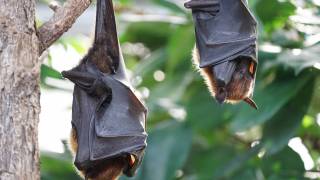Nipah Virus Vaccine Candidate Identified

A novel recombinant vaccine called NIPRAB is reported to demonstrate robust immunization against Nipah virus in mice models, according to a new study published in npj Vaccines.
This is important news since there is no approved vaccine against Nipah virus available today.
Nipah virus is a type of RNA virus transmitted from animals to humans.
The infection causes severe respiratory illness and symptoms including cough, headache, and fever, which can progress into encephalitis, seizure, and coma.
In recent years, outbreaks, from bat-to-human or pig-to-human transmission, have been reported in various countries.
In a 1999 outbreak, Nipah virus caused a relatively mild disease in pigs, but nearly 300 human cases with over 100 deaths were reported in Malaysia.
Therefore, the World Health Organization (WHO) lists the Nipah virus as a priority pathogen needing urgent action.
Matthias J. Schnell, Ph.D., Chair of the Department of Microbiology and Immunology and his team from Jefferson Vaccine Center at Thomas Jefferson University, took advantage of a modified rabies virus vector and incorporated a gene from Nipah virus - creating a viral particle that displays components of both viruses on its surface.
Because the immune system interacts with both viral components, it develops a reaction that is specific and can defend against both viruses.
The rabies vector is a well-established vaccine strain with little capacity to cause diseases in the nervous system.
Dr. Schnell and colleagues demonstrated that 1 dose of vaccine elicited a strong antibodies response against Nipah virus and rabies virus.
Those antibodies also react to a virus from the same family as Nipah, the Hendra virus, which causes similar symptoms.
In addition to the live version of the vaccine, which would be ideal for use in animals, the researchers also developed a chemically-killed version of the vaccine so that the viral replication was completely abolished.
They found the inactivated vaccine induced as strong immunity as the live vaccine did, and would, therefore, be an ideal vaccine for immunocompromised individuals, such as HIV patients, pregnant women, and children.
"We have a vaccine that is safe and effective against Nipah, Hendra, and Rabies virus in mice," says Dr. Schnell in a press release.
"Future work will focus on testing the vaccine on different species and establishing the right dose of injection.”
This research was funded, in part, by the NIAID Division of Intramural Research and the NIAID Division of Clinical Research via the Battelle Memorial Institute's prime contract with the National Institute of Allergy and Infectious Diseases (NIAID) at the National Institutes of Health, under contract no. HHSN272200700016I.
No conflicts of interest were disclosed.
Our Trust Standards: Medical Advisory Committee


